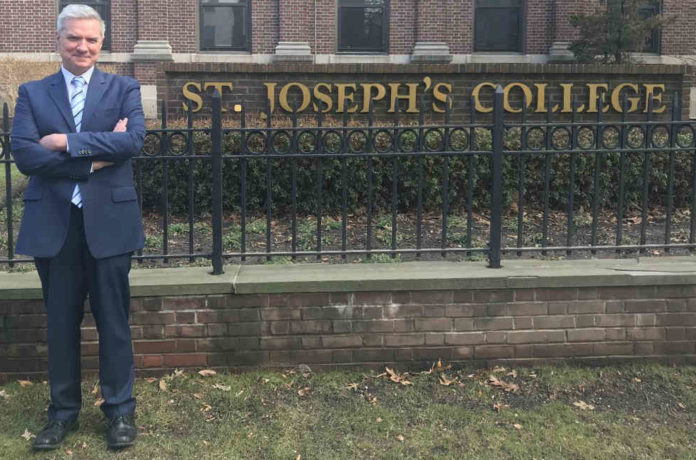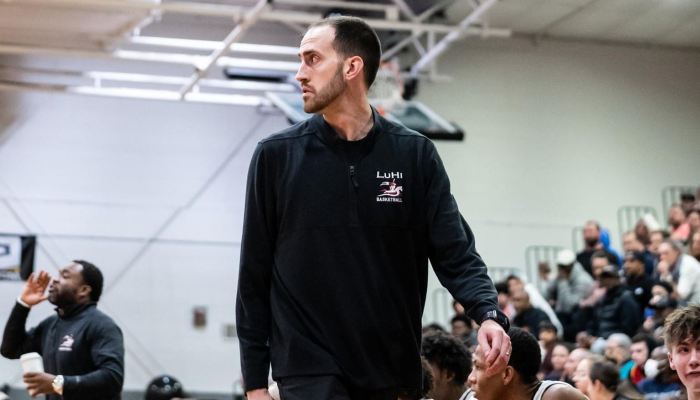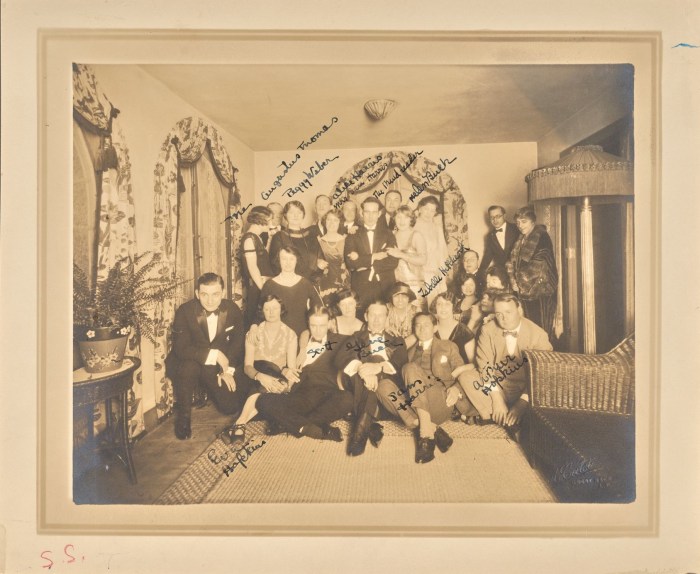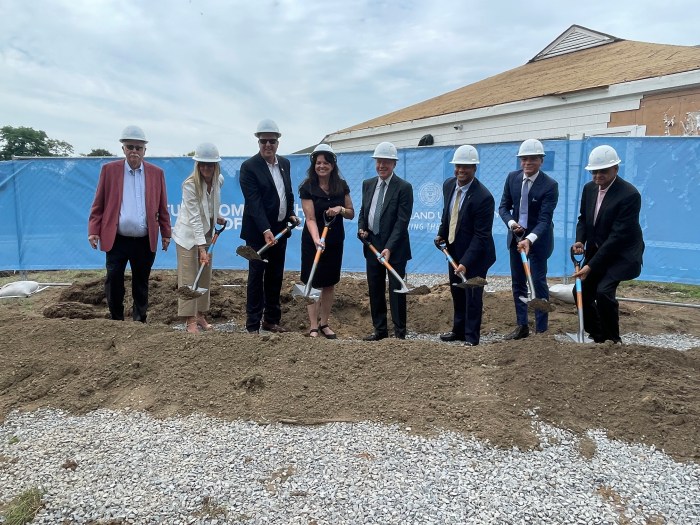As president of St. Joseph’s College, Donald Boomgarden, Ph.D., leads a school with campuses in Patchogue and Brooklyn as well as online. He talked with us about leadership, launching new degrees, thriving nursing and education programs, construction, and getting back to in-person education.
What’s the role of a college president today and has it changed dramatically?
I think it’s got to be one of the most challenging periods in history for all of us. I don’t think the role of the president has changed all that much, but the complexity of the job has changed. The role of the president to be the leader of the community — and provide insights and make decisions and be thinking of the good of the institution and the community around it — is the same.
How did you and the institution deal with and adapt to the pandemic?
We took a practical approach. St. Joseph’s College is primarily nonresidential. That gave us a lot of flexibility. We have an advanced online program. We had a large staff and faculty familiar with remote learning. So we shifted quickly and successfully to remote learning. We were able to not only maintain, but increase, our enrollments. The expertise in that area allowed St. Joseph’s to do quite well.
How do you focus on both the Brooklyn and Long Island campuses?
I spend about three days a week on Long Island and about three days a week in Brooklyn. I travel back and forth every week. That allows me to stay on top of everything on each campus.
What differentiates the campuses in terms of studies?
We try to offer the same programs on each campus. In Patchogue, one of the leading areas for St. Joseph’s is education. There are thousands of St. Joseph-educated teachers in the public and private schools on Long Island. That’s a major impact the college has had for a long time.
Which programs are big and growing in addition to education?
We’ve seen an explosion of interest in nursing. That continues to be so popular. Nursing has a seriously complex accreditation process. You’re only allowed to have X number of majors. We easily meet our numbers in nurses every year.
What other areas are particularly popular?
We’ve seen great growth in education, which runs contrary to what’s happening in most of the country. Majors like criminal justice and majors in the liberal arts and in the sciences, biology and chemistry.
What are some of the specialties for your online “campus?”
That continues to be an area of great growth. We offer 27 different programs fully online. A number of them are graduate. We have accounting, business management, healthcare administration, education. We’ve seen almost double- digit growth in online programs.
Can you update us on the new student center?
It’s a $17 million structure. It will be open by spring of 2023, 32,000 square feet, in Patchogue. It will have classrooms and offices as well as spaces for students, including dining areas and gathering areas for student life, a chapel, and an art gallery. It will be a beautiful building.
What new degrees are in the works?
We have a number of new degrees coming. Probably the most significant is the master’s of social work. I think that will be really important after we get through this pandemic. This summer, we just started a teaching of English as a second language master’s program. There are some other things we’re doing as well, including a bachelor’s of science in computer science education. It trains people to be teachers of computer science in the schools. That fits beautifully into our education program.
How do people react when you introduce yourself as a college president?
I never do. I still teach. My first year, I was teaching a class. The chair of the education department said, “Don, one of my students is in your class.” I said, “How do they like it?” She said, ‘He thinks you’re really funny. He said, ‘My teacher’s so funny. He keeps saying he’s the president!’”
How do you introduce yourself?
Sometime, people say, “Where do you work?” I say, “I work at St. Joseph’s.” Then they tell me about St. Joseph’s. They will say wonderful things about the school. When I went to get my inoculation, I went to a firehouse in Suffolk County. The nurse checking me in recognized me. She was a graduate of St. Joseph’s. Several people working there were from St. Joseph’s.
How does your music background fit into your academic role?
I think there are a lot of connections. I was trained as a classical pianist and musicologist and music historian. What you learn in music is discipline. You learn to sit in a chair for many hours and work on a very small thing to make it perfect. That’s an important skill. I can apply the same rigor to an administrative problem.
Do you still perform?
I give a recital every year. Last year right before the pandemic, I gave a recital of the piano works of Franz Liszt. This year, unless the pandemic stops us, I’m working on a recital program of the works of Gershwin. I try to play every year. I love to play. But it’s a great way to connect with faculty and students. It gives you a chance for them to see you as a person, not just a president.
What are the plans for in-person education?
We’re going to go back to in-person in the fall. God willing, that’s our plan. We have everything set up to do that. Our plan is to be fully back to the pre-pandemic approach on both campuses in the fall.
Are people excited or a little apprehensive, or both, about the fall?
I know people have a mixture of excitement and anxiety. I think the regular things we have planned will seem special after what we went through. Faculty meetings, informal gatherings when students come back for orientation. When classes begin, those will all have a special significance after what we’ve been through.
Sign up for Long Island Press’ email newsletters here. Sign up for home delivery of Long Island Press here. Sign up for discounts by becoming a Long Island Press community partner here.



































